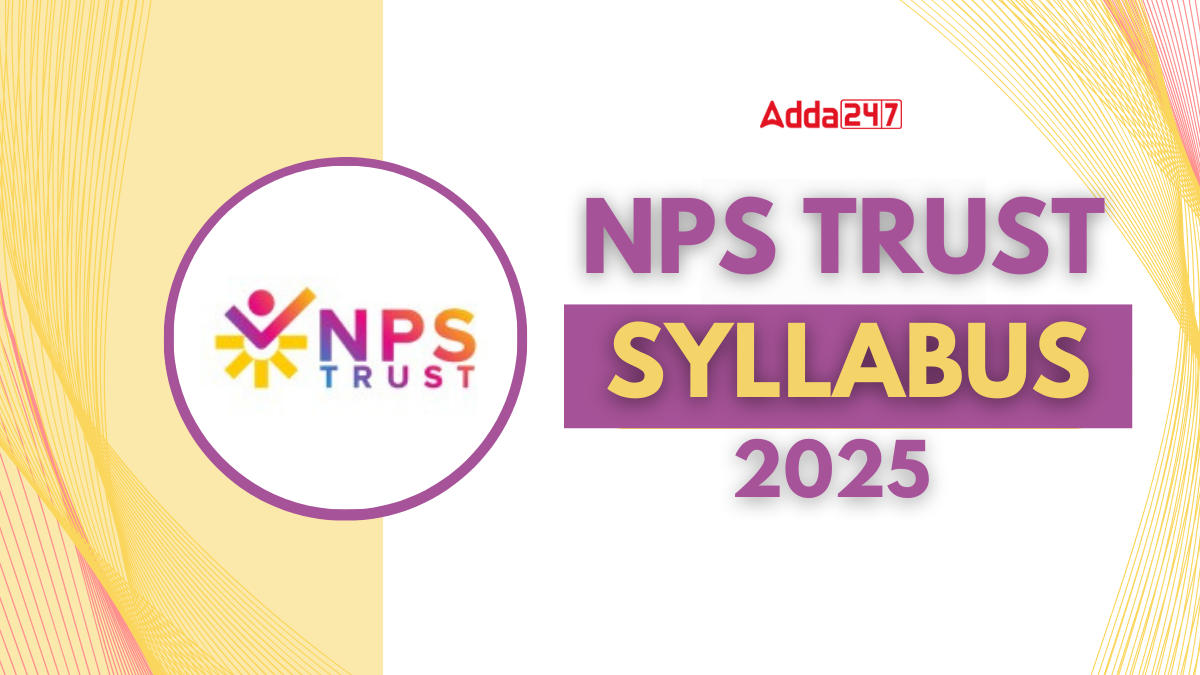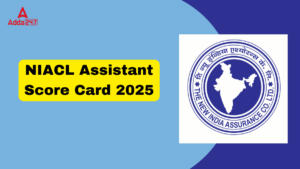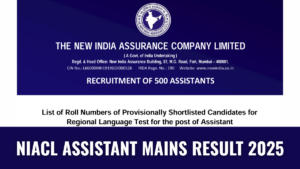Table of Contents
The NPS Trust Syllabus 2025 is required to appear in the online examination for the post of Manager and Assistant Manager. Understanding the syllabus and exam pattern is important for the candidates, as they will understand the structure of the examination and the subjects they need to prepare. There are two phases of the selection process where: Phase 1 is an online screening test, and Phase 2 is an online written test. The NPS Trust Syllabus and Exam Pattern for these phases differ in terms of section, marks, and number of questions.
NPS Trust Syllabus and Exam Pattern 2025
With the release of the NPS Trust Recruitment 2025, the recruitment authority has offered Officer Grade A and Officer Grade B, which is a great opportunity for candidates to start their career with a government firm. To qualify and excel in the examination, the candidates must get familiar with the subjects and topics of the NPS Trust Syllabus 2025. The online examination for Phase 1 will be conducted for 360 marks, and Phase 2 will be conducted for 300 marks. The marks scored in Phase II, and Interview will be determined for the final selection.
NPS Trust Admit Card 2025 Out-Click to Download
NPS Trust Exam Pattern 2025
Understanding the NPS Trust Exam Pattern 2025 thoroughly will help the candidates to know the examination structure. This includes the sections they need to prepare, the number of questions, section-wise marks, and the total duration of the examination. According to the marking scheme, for the correct answer, the candidates will get a +1 mark, and for every incorrect answer, -0.25 marks will be deducted for Phase 1 and Phase 2. Get details of the NPS Exam Pattern from the table given below.
NPS Trust Phase 1 Exam Pattern 2025
The phase 1 stage is an online screening test, which includes three streams: General, Human Resource, and Risk Management. There are 120 questions which the candidates need to answer in 360 questions within 270 Minutes.
| NPS Trust Exam Pattern 2025 for Phase 1 | ||||
| Stream | Subjects | No. of Questions | Marks | Duration |
| General Stream | General Awareness (including Financial Sector), English Language, Quantitative Aptitude, Reasoning & Analytical Skills, Commerce, Accountancy, Management, Finance, Data Analytics, Statistics, Companies Act, Indian Trusts Act, Economics, Pension Sector | 120 | 120 | 90 Minutes |
| Risk Management | 120 | 120 | 90 Minutes | |
| Human Resource | 120 | 120 | 90 Minutes | |
NPS Trust Phase 2 Exam Pattern 2025
The details of the NPS Trust Exam Pattern 2025 for Phase 2 have been mentioned in the table given below for the candidates. Phase 2 includes two papers where Paper 1 is a descriptive test, and Paper 2 is Specialized Subject MCQs.
| NPS Trust Phase 2 Exam Pattern 2025 | ||||
| Paper | Subjects | Stream | Marks | Duration |
| Paper 1 | English & General Studies | All Streams | 100 | 40 Minutes |
| Paper 2 | Specialised Subject MCQs | Risk Management, HR Stream | 100 | 40 Minutes |
| Commerce, Accountancy, Finance, etc | General Stream | 100 | 40 Minutes | |
NPS Trust Syllabus 2025
The detailed NPS Trust Syllabus 2025 has been mentioned here for the candidates. The candidates need to cover all the topics for each subject to excel in the examination. General Studies is a common subject, and there are specialised subjects, including the Human Resource Stream, Risk Management Stream, and General Stream. The subject-wise topics have been mentioned below.
| NPS Trust Syllabus 2025 | |
| Subjects | Topics |
| General Studies |
|
| Human Resource Stream |
|
| Risk Management Stream |
|
| General Stream |
|
How to Prepare with NPS Trust Syllabus 2025?
To prepare for the online examination, the candidates must start with the NPS Trust Syllabus 2025 and Exam Pattern. There are several topics which they need to cover to appear in the examination. However, preparing a strategy to qualify the examination may be challenging for some candidates, and to help them, we have shared few NPS Trust Preparation Tips 2025 here.
- Get Familiar with the Topics: There are several topics in the Phase 1 and Phase 2 examination which includes English, Reasoning, Quantitative aptitude, General Awareness, Commerce, Management, Specialization subject, etc.
- Work on Basics: The candidates who are preparing for the NPS Trust 2025 online examination must clear all their basics and build a strong foundation. It is important to understand all the concepts to make sure they can answer all types of questions from all the sections.
- Know your Exam Pattern: It is important for the candidates to get familiar with the NPS Trust Exam Pattern, as it includes the section wise weightage, number of questions, and marking scheme. This will help them to cover the topics based on the marks.
- Practice Mock Tests: Once you complete the syllabus, you can start by practicing the mock tests and previous year question papers. This will help them to analyze their performance and understand their keep points.
| Links Related to NPS Trust 2025 | |
| NPS Trust Recruitment 2025 | NPS Trust Salary 2025 |
| NPS Trust Admit Card 2025 | |



 NIACL Assistant Mains Score Card 2025, C...
NIACL Assistant Mains Score Card 2025, C...
 NIACL Assistant Mains Cut Off 2025, Stat...
NIACL Assistant Mains Cut Off 2025, Stat...
 NIACL Assistant Mains Result 2025 Out, P...
NIACL Assistant Mains Result 2025 Out, P...




